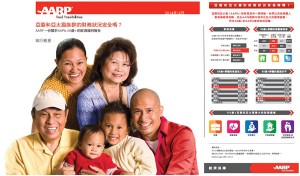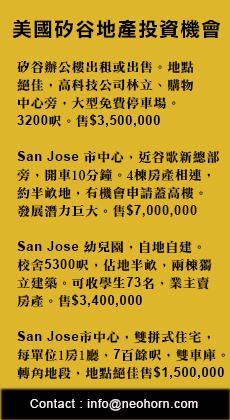一份最新的AARP研究報告揭示不同50+亞裔及太平洋島族裔群體(亞太裔)存在經濟差距。當作為一個整體來看,亞太裔群體的財務狀況好像比一般民眾更為穩健,但這些累計總數和平均數等數字卻隱藏著不同亞太裔群體之間存在的重大財富和收入差距。雖然少數亞太裔群組別具有較高的家庭收入和消費開支,但相比同齡的普通人群,很多亞太裔族群仍屬於貧窮甚至生活於在貧窮線之下。
“我們致力促進社會關注50+亞太裔群的需求,以填補這些社區的相關知識和服務不足。” AARP多元文化市場和參與部(亞太裔)副總裁郭為婉 (Daphne Kwok) 說,”亞太裔群經常未獲充分研究和得到應有的服務。我們的研究顯示亞太裔群的優先需求會因為不同因素而有差異,包括族裔、年齡、語言、收入、他們在美國居住的時間長短等。”
AARP的亞太裔長者財務狀況安全報告顯示:
相比同齡的美國總人口,65歲以上亞太裔長者的經濟更為脆弱,因為他們較少擁有養老金、社會安全福利、以及其他金融產品,例如醫療保險和退休儲蓄等:
14%的65歲以上亞太裔長者領取糧食卷,但全美國65歲以上人口僅有9%
13% 的65歲以上亞太裔長者生活貧窮,但全美國65歲以上人口僅有9%
68% 的65歲以上亞太裔長者領取社會安全福利,但全美國65歲以上人口有高達86%
22%的65歲以上亞太裔長者擁有來自養老金和各種退休計劃的退休收入,但全美國65歲以上人口有高達37%
亞太裔群50 +的家庭開支比其他美國50 +家庭更多($60,400比$50,100),但亞太裔群大多是與親屬同住和幾代同堂,因此這些數字反映的只是更多家庭成員總共的消費開支。
亞太裔長者置業率與全美國65歲以上人口相差無幾,但亞太裔族群較可能仍然在償還房屋貸款和擔心住房成本:
29%的65歲以上亞太裔長者自置居所及沒有房屋貸款,但全美國65歲以上人口有高達48%
42%的65歲以上亞太裔長者自置居所但有房屋貸款,然而全美國65歲以上人口僅有31%
24%的65歲以上亞太裔長者租住房屋,但全美國65歲以上人口僅有16%
通曉英語的亞太裔擁有更好的財務狀況,因為語言孤立的人群經濟機會有限。
“亞太裔族群的財務狀況安全嗎?AARP 一份關於亞太裔50 +的經濟福利報告”是AARP亞太裔群50歲及以上民眾相關的主要倡導領域,所進行的三個報告之二。該報告可於網站www.AARP.org/AAPI 免費下載。下一份報告關於亞太裔群健康和醫療保健,並將於一月公佈。
有關AARP可如何幫助亞太裔家庭獲得更美好生活,請瀏覽網站www.facebook.com/AARPAAPICommunity 和www.twitter.com/AARPAAPI。
WASHINGTON, D.C., December 9, 2014 – A new research report from AARP reveals economic disparity among Asian Americans and Pacific Islanders (AAPIs) age 50+. When viewed as a whole, AAPIs appear more financially secure than the general population, but the aggregate totals and median averages mask a large wealth and income gap among AAPIs. While a few AAPI groups have higher levels of household income and consumer spending, many more Asian ethnic groups are at or below poverty levels compared to the general population of the same age.
“We are committed to bringing attention to the needs of AAPI 50+ so that gaps in knowledge about and services for these communities are met,” said Daphne Kwok, AARP Vice President of Multicultural Markets and Engagement for the Asian American and Pacific Islander Audience. “AAPIs are consistently understudied and underserved. Our research demonstrates that the priority needs of AAPIs differ by ethnic group, age, language, income, the length of time they’ve lived in the U.S., and other factors.”
AARP’s report about the economic security of older AAPIs reveals that:
AAPIs age 65+ are more economically vulnerable compared to the total U.S. population of the same age because they are less likely to have pensions, social security, and other financial products like health insurance and retirement savings:
14% of AAPIs age 65+ are on food stamps vs. 9% of the total U.S. 65+ population
13% of AAPIs age 65+ live in poverty vs. 9% of the total U.S. 65+ population
68% of AAPIs age 65+ receive social security income vs. 86% of the total U.S. 65+ population
22% of AAPIs age 65+ have retirement income from pensions and various retirement plans vs. 37% of the total U.S. 65+ population
AAPIs 50+ households spend more compared with other U.S. 50+ households ($60.4K vs $50.1K), but AAPIs tend to live in extended and multigenerational households. Therefore the consumer spending reflects consumption by more household members.
Senior AAPI home ownership overall is at parity with the total U.S. 65+ population, but AAPIs are more likely to be still making mortgage payments and concerned about housing costs:
29% of AAPIs 65+ own their homes free and clear vs. 48% of the total U.S. 65+ population
42% of AAPIs 65+ own their homes with a mortgage vs. 31% of the total U.S. 65+ population
24% of AAPIs 65+ rent their homes vs. 16% of the total U.S. 65+ population
AAPIs who speak English are in better financial shape than those who are linguistically isolated which limits their financial opportunities.
“Are Asian Americans and Pacific Islanders Financially Secure?: An AARP Report about the Economic Well-being of AAPIs age 50+” is the second of a three-part series of reports by AARP about key advocacy areas that impact AAPIs age 50 and older. The report is available for free download at www.AARP.org/AAPI. The next report about the health and healthcare of AAPIs will be released in January.
For more information about how AARP helps Asian American & Pacific Islander families get more out of life, visit www.facebook.com/AARPAAPICommunity andwww.twitter.com/AARPAAPI.
關於AARP
AARP是一個擁有將近3,800萬會員的非營利及無黨派組織,旨在幫助人們將目標和夢想轉化為可實現的機會、並強化各個社區及致力改善與大部份家庭息息相關的議題,例如:醫療保健、就業和穩定收入、退休規劃、可負擔能源開支和免受財務詐騙。我們並關注在市場上的個人權益,因此悉心挑選冠以AARP名稱的優質和高值產品和服務,以及幫助我們的會員在一系列產品、旅遊和服務獲得折扣優惠。AARP是一個值得信賴的生活指南、新聞和教育信息的來源,它除了出版全球發行量最大的《AARP雜誌》(AARP The Magazine)、《AARP通報》(AARP Bulletin)、網站:www.aarp.org、AARP電視及電台、 AARP叢書、還有AARP西班牙語語網站AARP en Espanol,以關注拉美裔民眾的利益和需求。AARP不背書任何公職候選人或對任何政治活動或候選人捐贈獻金。AARP基金會是AARP組織的附屬慈善機構,致力為生活愈益困窘的50歲以上美國民眾爭取更多機會,目前他們面對眾多嚴峻議題,包括:住房、飢餓、收入和孤立等,AARP基金會通過成為改變這些議題的力量以達成目標。 AARP在全美50州、華盛頓特區、波多黎各及美屬維京群島均設有職員辦事處。詳情請瀏覽網站:www.aarp.org.
About AARP
AARP is a nonprofit, nonpartisan organization, with a membership of nearly 38 million, that helps people turn their goals and dreams into real possibilities, strengthens communities and fights for the issues that matter most to families such as healthcare, employment and income security, retirement planning, affordable utilities and protection from financial abuse. We advocate for individuals in the marketplace by selecting products and services of high quality and value to carry the AARP name as well as help our members obtain discounts on a wide range of products, travel, and services. A trusted source for lifestyle tips, news and educational information, AARP produces AARP The Magazine, the world’s largest circulation magazine; AARP Bulletin; www.aarp.org; AARP TV & Radio; AARP Books; and AARP en Espanol, a Spanish-language website addressing the interests and needs of Hispanics. AARP does not endorse candidates for public office or make contributions to political campaigns or candidates. The AARP Foundation is an affiliated charity that provides security, protection, and empowerment to older persons in need with support from thousands of volunteers, donors, and sponsors. AARP has staffed offices in all 50 states, the District of Columbia, Puerto Rico, and the U.S. Virgin Islands. Learn more atwww.aarp.org.




























